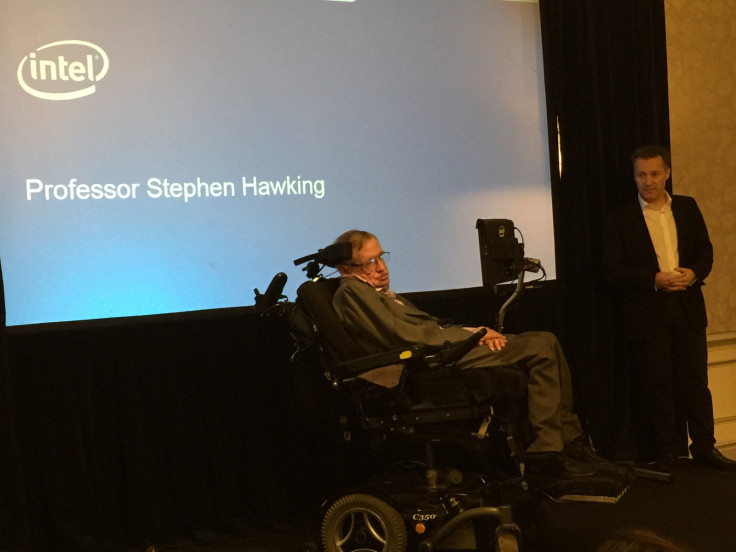Stephen Hawking and Intel use Swiftkey to create 'life-changing' speech system

Professor Stephen Hawking has launched his new communications system, developed in collaboration with Intel, which he says is "life changing".
The custom-built system, called ACAT (Assistive Context Aware Toolkit), is twice as fast as its predecessor, meaning he will double the rate at which he speaks and increase his ability to navigate around his computer system tenfold.
It has been developed in cooperation with SwiftKey, which creates specialised keyboards for smartphones and tablets.
Using Hawking's large back catalogue of writing, SwiftKey produced a bespoke language model for the physicist to help suggest words which are likely to be next.
From years to live to surpassing 90th birthday target
In 1963, shortly after his 21st birthday, Hawking was diagnosed with the moron neurone disease related to amyotrophic lateral sclerosis (ALS) and was told he had just a few years to live.
My old system is more than 20 years old and I was finding it very difficult to communicate effectively and to do the things I love to do
Today, over 50 years later, the world's most famous scientist announced he was planning on carrying on for at least another 20 years, taking him well into his nineties.
"The Intel team and I have been working together for almost three years on upgrading my communication system. My old system is more than 20 years old and I was finding it very difficult to communicate effectively and to do the things I love to do," Hawking said in London on Tuesday 2 December.
"With the improvements made I am now able to write much faster and it means I can continue to give lectures, write papers and books and of course speak with my family and friends more easily. This new system is life changing for me and I hope it will serve me well for the next 20 years."
Intel revealed that when it began developing ACAT with Hawking three years ago, he was only writing at a speed of less than a word a minute.
Stephen Hawking's distinctive voice will remain
While his rate of speech may be increasing, his distinctive voice, provided by his speech synthesiser, will not be changing.
Hawking first began working with Intel 25 years ago when he met company founder Gordon Moore at a conference. At the time, Hawking was using a computer system based on an AMD chip and when Moore heard this, he asked if Hawking be interested in using a real computer.
The result has been a partnership that has allowed Hawking to continue to carry out his work despite decreasing motor skills.
Hawking's current system uses has an infrared camera mounted on his glasses and is triggered by voluntary movements of his cheek, allow him to navigate around a specially built graphical user interface.
The new system will learn over time and will change depending if Hawking is writing a dense paper on the science of wormholes or penning an email to his friends.
Intel will be making ACAT available to all as open-source software in early 2015, though SwiftKey's part will not be open source.
© Copyright IBTimes 2024. All rights reserved.






